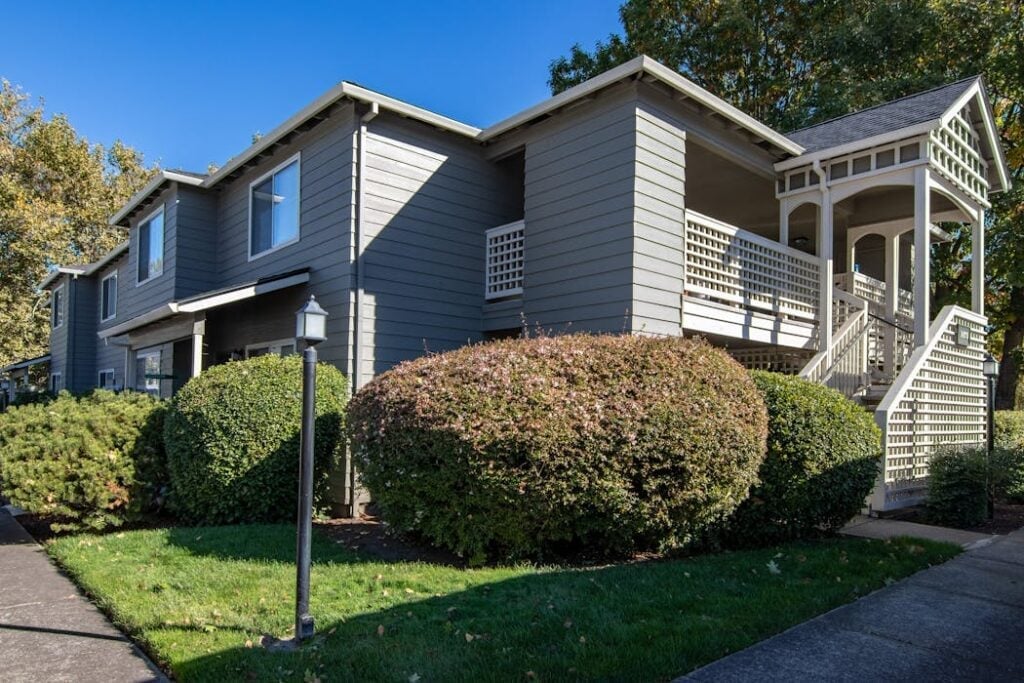Finding a new rental can be an exciting but sometimes overwhelming process. We get it. In between dreaming about how you’ll decorate your new place and planning your move, it’s important to remember that landlords and property managers often conduct background checks on renters. Given this, you may be surprised by the thorough background screening process that you need to undergo. While credit checks and rental reference checks are common, other background checks, such as criminal record checks, may also be requested, depending on the landlord’s policies and local regulations. Understanding how these background checks work can help you prepare and approach the rental process with confidence.
Don’t worry, we’re here to help. We’ve been in the online background screening business since 2016, so we know all about the ins and outs of the different checks.
In this guide, we’ll break down key components of background checks for renters, including credit checks, employment and income verification, and reference checks, while also addressing when criminal record checks may be requested and what privacy laws protect you. Additionally, we’ll explore how services like Certn’s MyCRC can help you simplify the background check process.
Why Do Landlords Conduct Background Checks?
Landlords invest significant time and resources in their rental properties, so they want to ensure that renters are reliable. Background checks provide insight into a prospective renter’s financial health, rental behaviour, and sometimes legal history.
Background checks can help landlords avoid potential issues such as late rent payments, property damage, or lease violations.
They might seem scary, but, again, they’re very common.

What Are Background Checks for Renters?
Background checks are a standard part of the tenant screening process that landlords use to verify information provided by potential renters and assess their suitability for tenancy. Background checks for renters typically include: credit checks, employment and income verification, rental reference checks, and, in some cases, criminal record checks.
These checks help landlords mitigate risks, improving the chances of selecting responsible renters who can meet their financial obligations.
Credit Checks
One of the most common components of background checks for renters is the credit check. A credit check involves reviewing your credit report, which contains information about your financial history — including your credit score, outstanding debts, payment history, types of credit accounts, and recent credit activity. It allows landlords to assess your financial reliability and determine whether you’re likely to pay rent on time.
Can I Run Credit Checks on Myself?
Yes! As a renter, you don’t have to wait until a landlord requests one, you can (and should) check your credit in advance to stay informed and avoid surprises during the rental process.
In fact, requesting your own credit checks is a proactive step that can benefit your rental search — you can see what landlords will likely see, correct any errors, and prepare explanations for anything that may raise questions.
You can obtain your credit report directly from Canada’s two major credit bureaus — Equifax and TransUnion — or through trusted third-party background screening providers.
Employment and Income Verification
Landlords want to ensure that renters have a stable and sufficient income to cover rent and other living expenses. That’s why employment and income verification is a key part of background checks for renters. While credit checks provide insight into your financial habits, employment and income verification can confirm whether you have the financial means to meet your monthly obligations. A common benchmark is that monthly rent should not exceed 30% of your gross income.
How Do Landlords Verify Employment and Income?
There are several ways a landlord or property manager may verify your income and employment status:
- Pay Stubs: You can provide recent pay stubs as proof of consistent income.
- Employment Letter: Many landlords request a letter from your employer confirming your position, salary, and length of employment.
- Tax Returns: If you’re self-employed or work as a freelancer, tax documents can help prove income stability.
- Bank Statements: Some landlords accept bank statements showing regular deposits that align with a steady income source.
In some cases, landlords may also use third-party background screening services to conduct employment and income verification as part of background checks. These services help validate your financial stability quickly and securely, often using secure, automated data sources instead of relying solely on manual documentation.
Rental History and Reference Checks
A solid rental history is a major asset when you’re looking for a new place to live. To assess a prospective renter’s suitability, landlords and property managers typically conduct thorough background checks on their rental history and references, including the renter’s track record of paying rent on time, taking good care of the property, and adhering to the terms of the lease agreement.
Rental history and reference checks usually involve reviewing a renter’s past rental experiences, including:
- Previous landlords’ feedback on payment history, property care, and lease compliance.
- Length of past tenancies, as stability is often viewed positively by landlords.
- Eviction records, if applicable, to see if a renter has had major disputes with previous landlords.
Some landlords may contact your previous landlords directly, while others may use third-party tenant screening services to streamline the process.
How Do I Prepare for Rental History and Reference Checks?
Rental history and reference checks are a key part of background checks that help landlords evaluate your reliability as a renter. If you have rented before, here’s how you can ensure a smooth rental history and reference check:
- Provide accurate and up-to-date contact details for previous landlords or property managers.
- Request reference letters in advance, especially if you had a good relationship with past landlords.
- Be upfront about any rental disputes and provide context if there were late payments, misunderstandings, or previous issues.
What if I Have No Rental History?
If you are a first-time renter or have been living in a family home, background checks may still include other indicators of your reliability. Landlords may allow alternative forms of proof, such as:
- A co-signer or guarantor (someone who agrees to take financial responsibility if you are unable to pay rent).
- Proof of steady income or savings, showing financial responsibility.
- Personal or professional references, such as an employer or professor, who can vouch for your responsibility and stability.
Criminal Record Checks
Criminal record checks may be part of background checks, but they’re also among the most sensitive and highly regulated aspects. If you’re unsure about how criminal record checks work, you can learn more by consulting Certn’s guide to criminal record checks in Canada. In Canada, landlords must handle criminal record checks with care, balancing their need for information with privacy laws and human rights protections that prevent discrimination.
Are Criminal Record Checks Always Required?
Criminal record checks aren’t always required. While some landlords may request criminal background checks as part of the tenant screening process, it’s not a universal requirement. In many cases, the request should be justified as relevant to the nature of the tenancy — for example, in shared housing situations, when the rental involves proximity to vulnerable individuals, or in multi-unit buildings where families with children reside. Importantly, landlords must always obtain your written consent before requesting any criminal record checks, and the use of this information must comply with privacy laws and human rights regulations.
If a landlord requests criminal record checks, being able to provide one yourself can show that you’re organized, proactive, and ready to move forward. Self-requested checks also give you more control over your personal information, since the results are shared only when and with whom you choose. Services like Certn’s MyCRC make this process simple by letting you request your own police-reported criminal record checks online, quickly and securely. It’s especially useful if you’re applying to multiple rentals or want to review your record in advance to ensure everything is accurate.
By understanding how criminal record checks work and ensuring your rights are respected throughout the process, you can advocate for yourself more effectively.

Your Rights as a Renter
While background checks are standard when renting a property, renters have rights under the Personal Information Protection and Electronic Documents Act (PIPEDA) as well as applicable provincial and territorial human rights laws. These laws help ensure your personal information is handled legally, fairly, and respectfully. Key protections include:
- Written Consent: Landlords must obtain your written consent before conducting any background checks, such as credit checks or criminal record checks. This applies whether landlords conduct background checks themselves or use a third-party background screening vendor provider.
- Access to Personal Information: You have the right to access any personal information a landlord or background screening vendorprovider holds about you. You also have the right to request corrections if the information is inaccurate or incomplete.
- Fair Consideration: Landlords cannot reject renters based on factors such as racial or ethnic background, disability, gender identity, family or marital status, sexual orientation, age, or other protected grounds outlined in human rights codes. For criminal record checks, landlords must ensure the results are relevant to the nature of the tenancy and avoid blanket exclusions. We suggest you research what’s allowed in your area, as the requirements vary.
- Privacy Protection: Your personal data must be securely stored and used only for purposes related to evaluating your rental application. Landlords are also responsible for ensuring third-party background screeningservice vendorsproviders follow the same privacy standards. This includes protecting sensitive data from criminal record checks.
What to Do If I Do Not Pass Background Checks?
If background checks raise concerns, don’t panic. You can take proactive steps to improve your rental prospects:
- Improve Credit: Consistently making on-time payments towards outstanding debts will gradually raise your credit score and strengthen your credit profile. This demonstrates financial responsibility and reliability to potential landlords.
- Offer Additional Security Deposit: Offering a larger security deposit than typically required can mitigate concerns about potential financial risk for the landlord. This shows good faith and a willingness to take extra steps to secure the rental agreement.
- Provide a Co-Signer or Guarantor: If your credit history is less than ideal, having a co-signer or guarantor with a strong financial standing can vouch for your reliability. This provides the landlord with additional assurance that rent will be paid on time and the property will be well-maintained.
- Negotiate with the Landlord: Open and honest communication with the landlord can go a long way in addressing any concerns raised by background checks. Explain any discrepancies on your record, provide context where needed, and offer additional documentation that supports your financial responsibility.
- Seek Professional Guidance: If you’re facing significant challenges with your background checks, consider seeking advice from a credit counselor or housing advocate. There are also legal resources and tenant organizations that can advise you on how to respond to criminal record checks or challenge improper use of your information.
Remember, background checks are just one piece of the rental application puzzle. By taking proactive steps to address any concerns and demonstrating your commitment to being a responsible renter, you can increase your chances of securing the rental property of your dreams.





